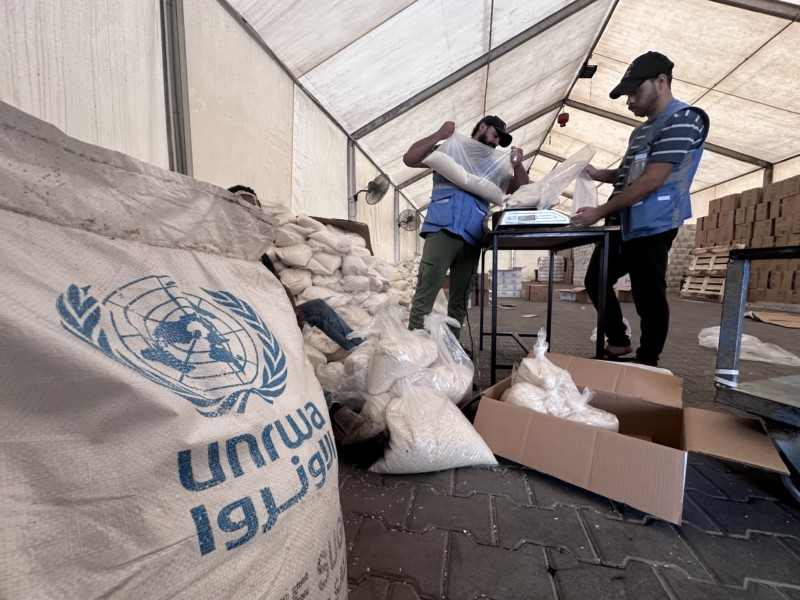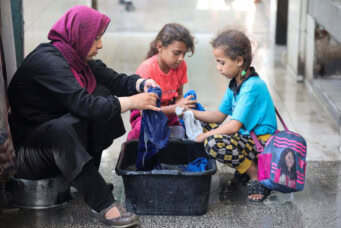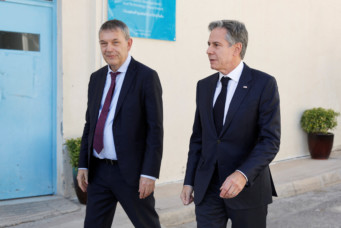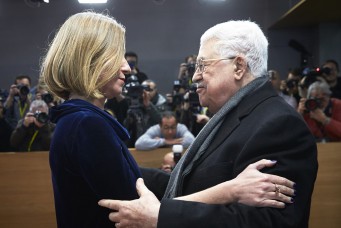‘UNRWA is a Lifeline of Hope’—Foreword by Antonia De Meo
UNRWA’s Deputy Commissioner-General for Operational Support, Antonia De Meo, provides a foreword to the Cairo Review’s Spring 2024 issue dedicated to the agency amid the unprecedented challenges it faces

We are grateful to the Cairo Review of Global Affairs for dedicating this edition to the United Nations Relief and Works Agency for Palestine Refugees in the Near East (UNRWA).
UNRWA was established in 1949 as a temporary agency with a mandate that was intended to last only one year, primarily to assist Palestine refugees, defined as “persons whose normal place of residence was Palestine during the period 1 June 1946 to 15 May 1948, and who lost both home and means of livelihood as a result of the 1948 conflict.” The continued existence of UNRWA 75 years later is no source of pride; rather, the absence of a just and lasting solution for Palestine refugees is a source of sorrow. Today, as prospects for peace remain remote, the need for UNRWA remains acute.
For Palestine refugees across Gaza, the occupied West Bank including East Jerusalem, Jordan, Syria, and Lebanon, UNRWA is a lifeline of hope. Our educational and vocational training programs have empowered generations of Palestinians, giving them the tools to build better futures. UNRWA encompasses the story of countless Palestine refugee lives forever changed. It is the story of engineer Loay Elbasyouni, who attended UNRWA schools in Gaza and went on to work for NASA, contributing to the Perseverance rover that landed on Mars. It is the story of Nowras Rahal, who attended an UNRWA school in Damascus before moving abroad to become a medical researcher. Today, he is working on the cutting edge of nano technology and vaccine development.
In the Middle East region at large, UNRWA stands as a pillar of stability. By offering essential services such as education, healthcare, and social support, the Agency is making vital contributions to alleviate pressure on over-stretched local governments and communities. UNRWA has been extraordinarily successful in providing a neutral civil service based on United Nations values and principles in extremely difficult—some would say impossible—circumstances.
Yet today the future of UNRWA is more uncertain than ever before. We are confronting a perfect storm of challenges.
First and foremost, the war in Gaza. Seven months after the heinous attacks of October 7th, the situation for people in Gaza is worsening by the day. They have very little to eat, hardly any access to medical care, little shelter, and nowhere safe to live. UNRWA is the backbone of the entire humanitarian operation in Gaza, coordinating and providing lifesaving assistance. Our staff, most of whom have themselves been displaced multiple times, are doing impossible work in impossible conditions. At the time of writing, we have lost 188 colleagues—an average of one life lost per day of the war, the most ever for the United Nations during any conflict in its history. More than 160 UNRWA premises, mostly used as shelters, have been damaged or destroyed and more than 400 people have been killed while seeking shelter under UNRWA’s blue flag. Our requests to deliver urgently needed humanitarian aid to the north have been repeatedly denied. Amidst the prospect of an offensive on Rafah, many fear the worst is yet to come.
Second, the financial crisis. In the wake of allegations in late January 2024 that individual UNRWA area staff in Gaza participated in the October 7th attacks on Israel, key donors of the Agency suspended their contributions. Horrified by the allegations, the Commissioner-General immediately terminated the appointments of those concerned. The UN Secretary-General ordered an investigation through the Office of Internal Oversight Services, the highest investigative authority of the United Nations. In parallel, an Independent Review Group assessed how UNRWA upholds neutrality—a core humanitarian principle guiding our work. In April 2024, it published its final report, concluding that the Agency has a solid system in place to uphold neutrality and providing recommendations to further strengthen these processes. UNRWA is fully committed to implementing these recommendations.
Today, many donors have resumed or increased their support to UNRWA, and some Member States are giving to the Agency for the first time. What is most heartening is the generosity of private donors around the world, with an unprecedented income from individuals, private foundations, and the corporate sector. But UNRWA still has a critical funding gap, and we are forced to go month by month to manage our fragile cashflow. The continuity of the Agency’s operations across Jordan, Lebanon, Syria, Gaza, and the West Bank, including East Jerusalem, is still in question.
Third, attacks against the Agency. UNRWA remains the target of sustained and relentless attacks, including disinformation, that seek to discredit the Agency’s reputation and question its role. UNRWA has faced active criticism for at least two decades, but increasingly, the quiet part is being said out loud. Our critics aim to delegitimize the Agency, not for the services we provide, but for what we symbolize: the rights and needs of Palestine refugees in the absence of a lasting political solution.
Calls to eliminate UNRWA are calls to end the refugee status of millions of Palestinians. At its core, the campaign against UNRWA seeks to circumvent the long-standing political parameters for peace in the occupied Palestinian territory clearly laid out in United Nations resolutions, international law, and bilateral agreements. But denial is not a strategy: dismantling UNRWA would not resolve the conflict between Israelis and Palestinians. Silencing the reminder of that conflict does not silence the conflict—only political dialogue and good-faith negotiations can do that. Accusations that UNRWA deliberately perpetuates the refugee status of Palestinians are false and misleading. The Agency exists because a political solution does not. It exists because a Palestinian State that can deliver public services in its place to Palestine refugees does not exist.
UNRWA has no interest to continue in perpetuity. Amidst genuine, credible prospects for a political solution, the Agency is ready to retrieve its temporary status by supporting a time-bound transition, delivering education, primary healthcare, and social support until a Palestinian administration takes over these services, absorbing UNRWA’s Palestinian personnel as civil servants.
Against all odds, we are cautiously optimistic. The discussion on UNRWA has been elevated and is now part of policy discussions around the world. This reflects the growing recognition that the challenges facing the Agency are more than operational obstacles and financial constraints; they are political, striking at the Agency’s raison d’être. This recognition opens the door for more meaningful debate at the highest political levels. More importantly, we hope it will, at long last, propel real progress towards a path out of endless cycles of violence, despair, and suffering for Palestinians and Israelis alike.
This is also what makes the work of the Cairo Review of Global Affairs so timely and crucial. We look forward to the insights this edition will bring to our collective understanding and the global conversation on UNRWA, the plight of Palestine refugees, and the prospects for peace and stability in the Middle East.
Antonia De Meo is UNRWA’s Deputy Commissioner-General for Operational Support.
She previously served as Director of the United Nations Interregional Crime and Justice Research Institute (UNICRI) from 2020 to 2024, Chief of the Human Rights, Transitional Justice and Rule of Law Service at the United Nations Support Mission in Libya and Representative of the Office of the High Commissioner for Human Rights in Libya (2018-2020), and Chief of Staff and Director of the UNRWA Executive Office (2014-2017).
Ms. De Meo has over twenty-five years of experience in executive leadership, strategic planning, representation, resource mobilization and all aspects of operational oversight in humanitarian, conflict, recovery, and development contexts.
Read More




